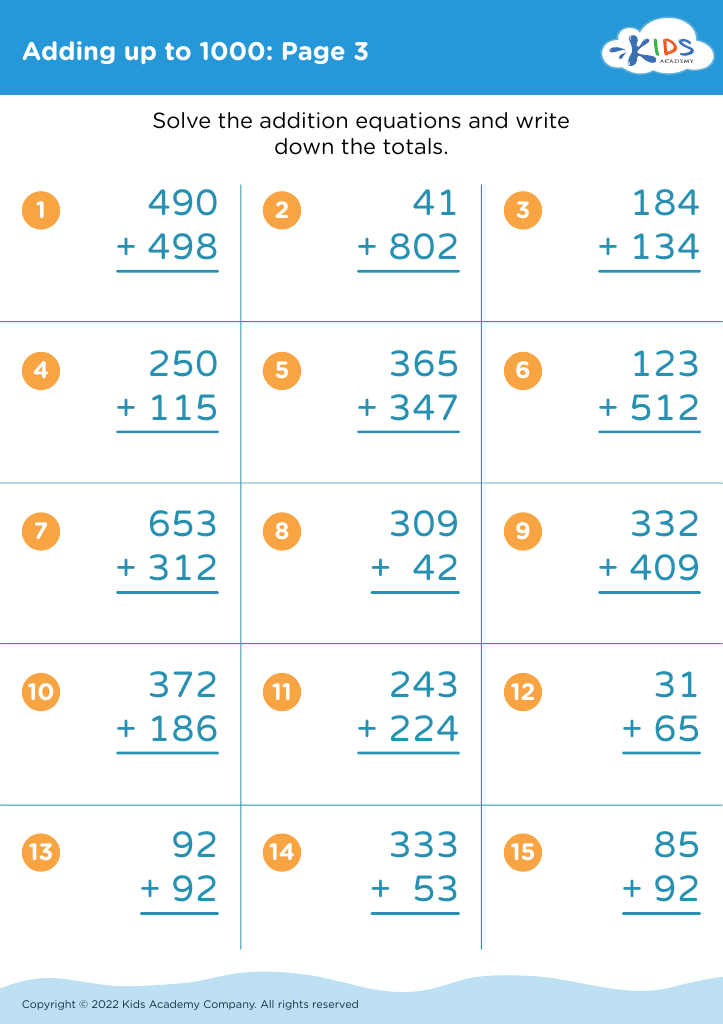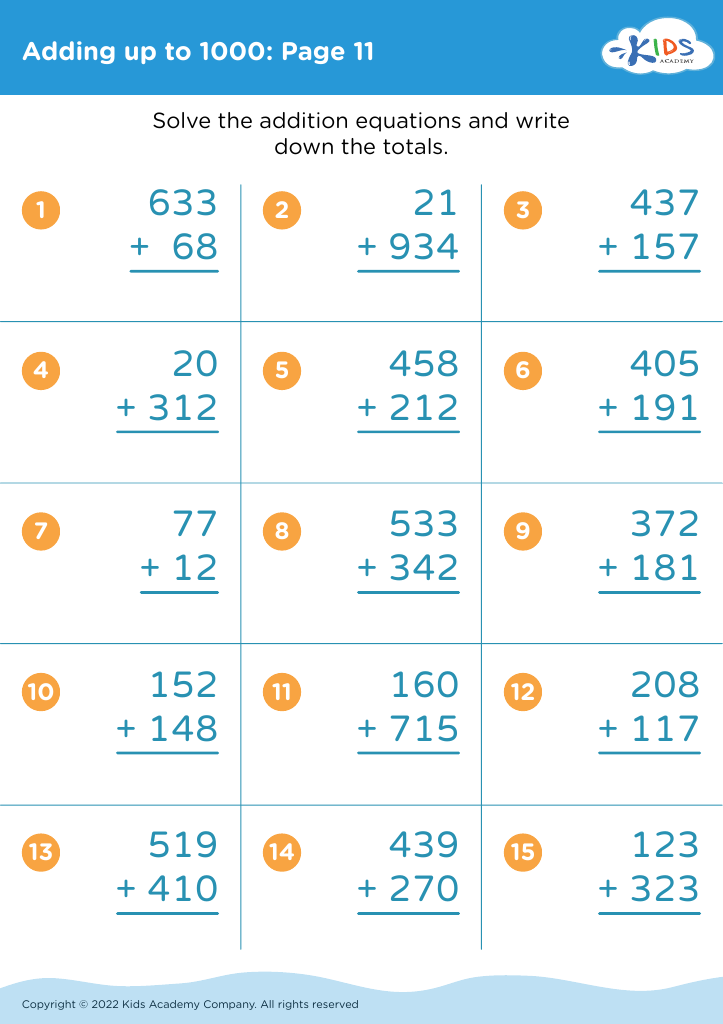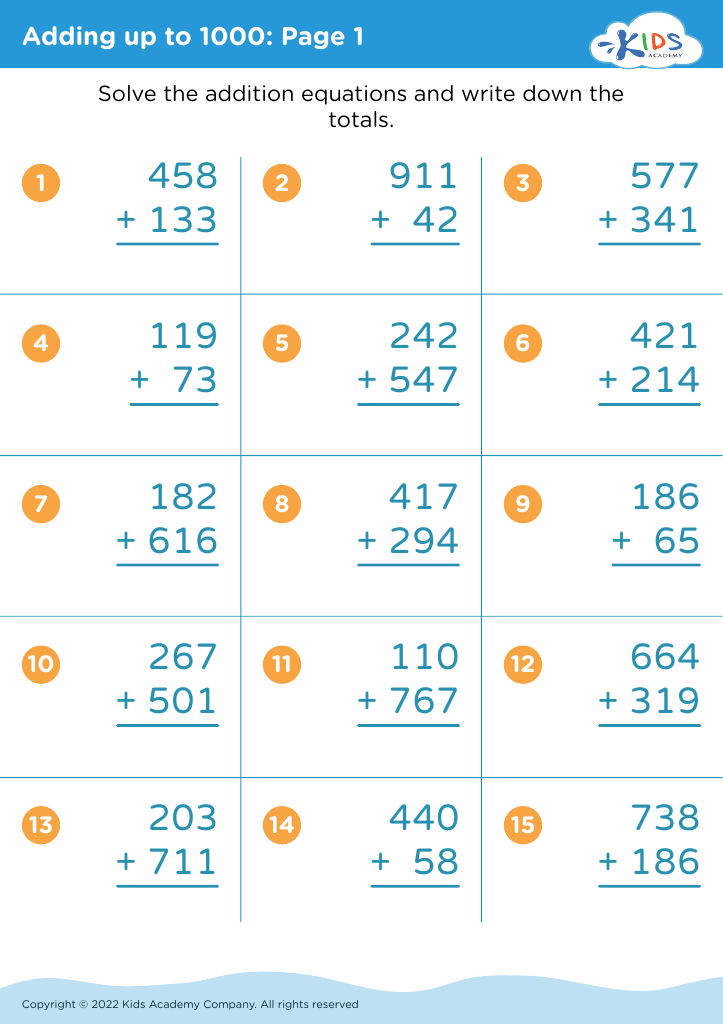Understand multiplication Adding up to 1000 Misc Worksheets for Ages 4-9
3 filtered results
-
From - To
Welcome to our "Understand Multiplication: Adding Up to 1000 Misc Worksheets" specifically designed for children aged 4-9! These engaging worksheets aim to build foundational multiplication skills while reinforcing number concepts within the range of 0 to 1000. Each activity is crafted to promote critical thinking and enhance problem-solving abilities, making math enjoyable and accessible. Our resources cater to various learning styles, ensuring that every child can grasp the concept of multiplication through fun and interactive exercises. Perfect for classroom use or home study, these worksheets will empower young learners to explore and excel in their mathematical journeys. Dive in and watch their confidence grow!
Parents and teachers should care about helping students understand multiplication and addition up to 1000 for several reasons. Firstly, mastering these foundational skills is vital for arithmetic competence, laying the groundwork for more complex mathematical concepts. Young children, aged 4-9, are in a critical developmental stage where cognitive abilities grow rapidly; this is the perfect time to cultivate a strong number sense.
Understanding multiplication promotes quicker problem-solving and mental math skills, enabling children to tackle various mathematical challenges confidently. When children grasp the concept of addition and are comfortable adding numbers up to 1000, they develop the analytical skills necessary for real-world situations, such as budgeting and measuring.
Additionally, addressing these skills fosters perseverance and critical thinking—themes that are not only essential in math but across all subjects. Furthermore, educational success can build self-esteem and motivation in young learners, encouraging them to engage more deeply with their learning process.
By emphasizing multiplication and addition, educators and parents facilitate an environment of encouragement and curiosity, helping to nurture a lasting appreciation for math that will benefit students as they progress through school and beyond.













